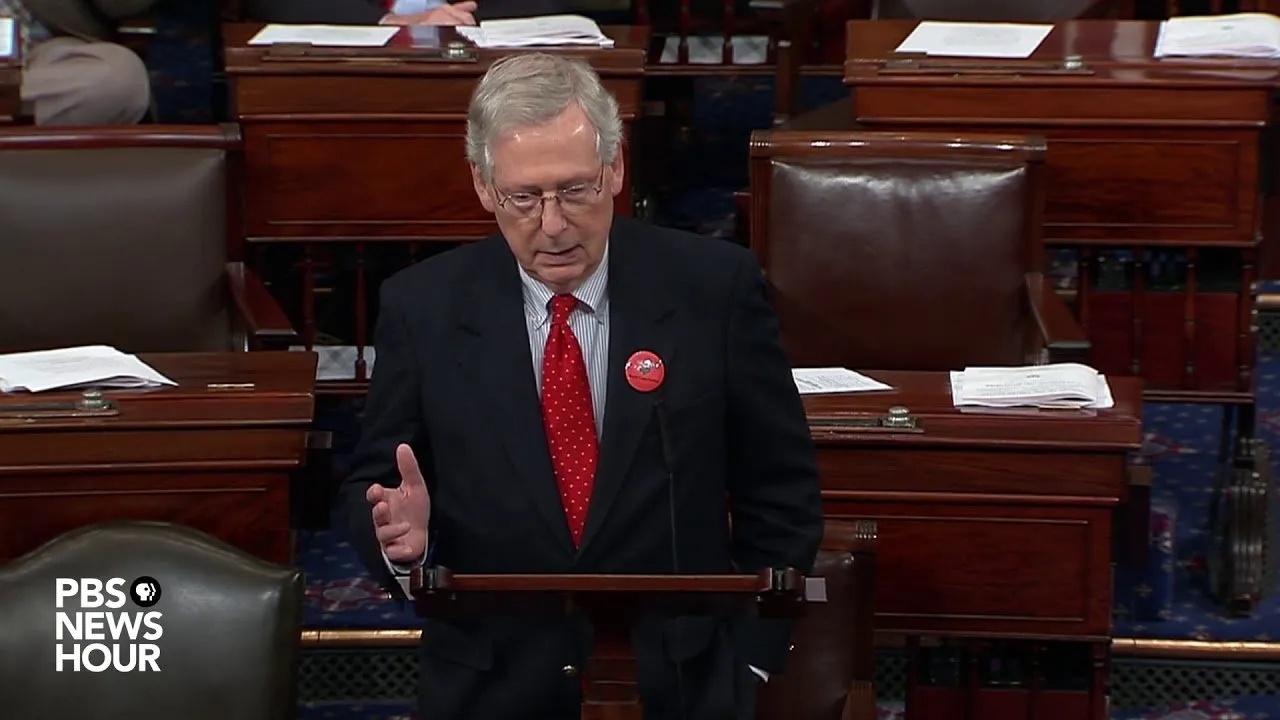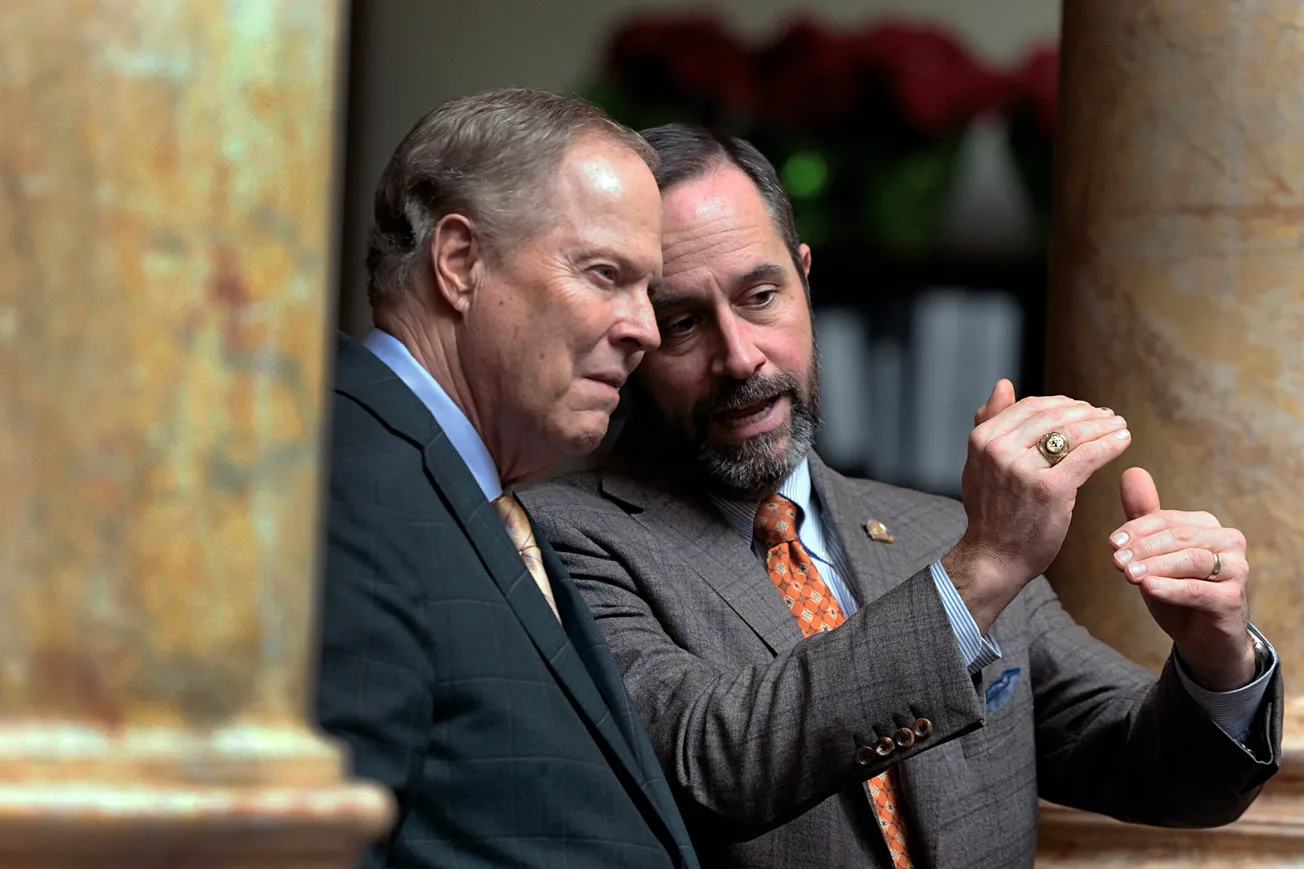Table of Contents
QAnon fan and former state representative C. Wesley Morgan came up way short against Sen. Mitch McConnell in the June GOP primary, but Marjorie Taylor Green, a Georgia Republican and another QAnon devotee, is on her way to Congress.
Meanwhile, the president’s defeat is shaking the faith of some others who buy into the bogus, bizarre, pro-Trump QAnon conspiracy theory that’s firing up far-right-wing internet fringies.
According to QAanon, a secret cabal of rich and powerful “Deep State” Democrats and their allies, including Hollywood stars and movie moguls — read Jews — are kidnapping kids and using their blood for satanic rituals. It’s warmed-over anti-Semitism, according to Murray State University historian David Pizzo.
“The whole thing about child murder is literally the recycled blood libel,” he said.
Blood libel and the Protocols of the Elders of Zion
The blatant falsehood dates to the Middle Ages when some Catholics charged that Jews abducted Christian children and used their blood in religious rites. Ultimately, the Catholic Church rejected the “blood libel.” But it never went away and flared anew in czarist Russia in 1903 with the publication of “The Protocols of the Elders of Zion,” a phony pamphlet that purportedly revealed a Jewish plot to rule the world.
The tract — “the most notorious and widely distributed antisemitic publication of modern times,” according to the Holocaust Encyclopedia — was translated into other languages and distributed globally. Rabidly anti-Jewish American automaker Henry Ford printed and disseminated half a million copies in English. Adolf Hitler and the Nazis incorporated German language translations into their vicious propaganda campaign against Jews that culminated in the Holocaust.
In The Times of Israel, Ben Sales cited experts who concluded that “QAnon is inherently anti-Semitic — and only growing more so. … The New York Times reported that there are 200,000 QAnon social media accounts on Germany’s far-right, and that the conspiracy was part of what inspired a faction of German extremists to storm its parliament in August [of 2020].”
“This whole blood libel is very prominent there, the idea of kidnapping children for blood,” Magda Teter told Sales. She is a professor of Jewish studies and author of Blood Libel: On the Trail of an Antisemitic Myth. “People are going to start googling ‘killing children for blood.’ That will lead them to anti-Semitism even if they may not be initially inclined,” she also said.
In addition, Sales wrote that QAnon online forums commonly refer to “The Protocols” and a “Zionist occupied [American] government.” He quoted Eric Feinberg of the Coalition for a Safe Web: “QAnon adherents are latching on to widespread Jewish support for Democrats, especially as the election [approached].”
Related Posts
QAnon and Trump
The QAnon faithful never miss a chance to tout Donald Trump, insisting that only he can vanquish the Democratic “pedophiles.” Even so, in his televised Oct. 16 town hall with NBC’s Savannah Guthrie, Trump vowed he knew “nothing about QAnon,” but added that he understood that “they are very much against pedophilia.”
Weeks before the debate, the FBI reportedly tagged QAnon a domestic terrorist threat. On Oct. 2, the House of Representatives condemned Quanon, but 17 Republicans opposed the resolution, and Kentucky’s Thomas Massie was present but did not vote on it.
QAnon — the latest in a long line of American conspiracy theories
QAnon is the most current variant in a long list of conspiracy theories that have risen and fallen throughout American history, said Greg Leichty, professor of communication at the University of Louisville. But he said all such theories are more prevalent when there’s “a decline in the authority of, and the trust given to, traditional knowledge institutions,” including the news media, medicine, and science. “These authorities are ordinarily the arbiters of what counts for knowledge.”
Phony conspiracy theories like QAnon are “stigmatized knowledge,” meaning “certain beliefs that are not respectable and not recognized by traditional knowledge arbiters,” according to Leichty.
But sometimes “stigmatized knowledge” gains traction in bodies politic. “The QAnon theory has become increasingly popular and visible in recent months, in the United States and abroad,” Sales wrote. “According to NBC, [QAnon’s] Facebook group boasted millions of members in early August. Republican candidates have supported it, and people wearing or carrying Q slogans have shown up to mainstream political rallies.”
Citing political scientist Michael Barkun, author of A Culture of Conspiracy: Apocalyptic Visions in Contemporary America, Leichty said people attracted to conspiracy theories like QAnon have three common characteristics:
- First, they are convinced that “things aren’t what they appear to be.”
- Second, “nothing happens by chance – in other words, there’s a personal causative agent behind change.”
- Third, “everything is connected.”
Belief in conspiracies like QAnon, no matter how patently false and far-fetched, can also reflect “a sense of the loss of personal control” and, hence, function as “a coping mechanism,” Leichty said.
But originators of modern online conspiracy theories with thousands — even millions — of disciples have “found a way to use the tools of the internet to purposely subvert a culture,” Leichty said.
QAnon spreading through the GOP
Morgan is evidently the only Kentucky politician to embrace QAnon openly – so far, anyway.
But Greene, who was elected without opposition in a deeply Republican and conservative district, “was among at least a dozen Republican congressional candidates — some estimates put the number upward of 20 — who had expressed some degree of support for QAnon and its baseless belief that President Trump is fighting a cabal of Satanist child-molesting Democrats and deep-state bureaucrats who seek global domination,” Matthew Rosenberg and Jennifer Steinhauer wrote in The New York Times. “Most were running for reliably Democratic seats.”
–30–







